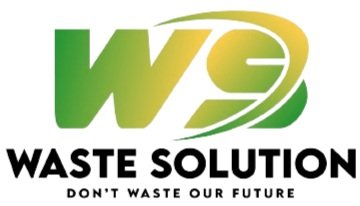Choosing the Right Waste Management Service
Professional waste removal companies play a significant role in developing and implementing innovative solutions to tackle waste-related challenges.
Effective waste management is vital for businesses and communities, playing a vital role in maintaining a clean environment and promoting sustainability. Selecting the appropriate waste management service can significantly impact an organization's environmental footprint, operational efficiency, and bottom line. Several factors should be examined to make an informed decision when considering various waste management options.
Understanding Waste Streams
Before choosing a waste management service, it's essential to understand the sorts and volumes of waste produced clearly. Different businesses produce varying waste streams, including general waste, recyclables, organic waste, hazardous materials, or electronic waste. Conducting a waste audit can provide valuable insights into the composition and quantity of waste produced, helping to identify the most suitable waste management solutions.
Compliance with Regulations
Waste management is heavily regulated, with local, state, and federal laws governing the handling, transportation, and disposal of different types of waste. When selecting a waste management service, verifying that the provider complies with all relevant regulations is crucial. A reputable waste management company should be well-versed in current legislation and able to assist clients in meeting their legal obligations regarding waste disposal.
Recycling and Sustainability Initiatives
In today's environmentally conscious world, recycling and sustainability are increasingly important considerations. A good waste management service should offer comprehensive recycling programs and be committed to minimizing the amount of waste sent to landfills. Look for providers that offer sorting and recycling services for various materials, including paper, plastics, glass, and metals.
Collection Frequency and Flexibility
The frequency of waste collection is essential, as it can impact both the premises' cleanliness and the service's cost. While some businesses may require daily collections, others might find weekly or bi-weekly services sufficient. A flexible waste management provider that can adjust collection schedules based on changing needs can be precious, especially for businesses with seasonal fluctuations in waste generation.
Equipment and Technology
Modern waste management often involves sophisticated equipment and technology to improve performance and lower environmental impact. When evaluating potential service providers, consider the types of containers and vehicles they use. Some companies offer smart bins with sensors to optimize collection routes and schedules. Additionally, look for providers that use environmentally friendly vehicles or alternative fuels to minimize their carbon footprint.
Waste Reduction Strategies
A proactive waste management service should focus on collecting and disposing of waste and helping clients reduce their overall waste generation. Look for providers offering waste reduction consultations, employee educational programs, and strategies to minimize waste at the source. These services can lead to long-term cost savings and improved environmental performance.
Cost Structure and Transparency
While cost shouldn't be the sole determining factor, it's undoubtedly an important consideration when choosing a waste management service. Request detailed quotes from multiple providers, and pay attention to the pricing structure. Some companies offer all-inclusive pricing, while others charge separately for different services. Transparency in billing is crucial, so opt for a provider that offers clear, itemized invoices and is willing to explain all charges.
Customer Service and Support
Reliable customer service is essential in waste management, as issues like missed collections or container damages can quickly become problematic. Choose a provider known for responsive customer support and effective problem resolution. Additionally, consider whether the company offers dedicated account managers or online portals for accessible communication and service requests.
Reporting and Analytics
Data-driven insights can be invaluable for improving waste management practices over time. Modern waste management services offer detailed reporting and analytics on waste volumes, recycling rates, and environmental impact. These reports can help track progress toward sustainability goals, identify areas for improvement, and demonstrate compliance with environmental regulations.
Local Presence and Infrastructure
A waste management provider with a strong local presence and well-established infrastructure can often offer more reliable and efficient services. Local knowledge can be particularly beneficial when understanding regional regulations and waste management challenges.
Additional Services
Some waste management companies offer additional services that can add value to their core offerings. These may include confidential document destruction, hazardous waste handling, electronic waste recycling, or even waste-to-energy solutions. Consider whether these additional services align with the organization's needs and could streamline waste management processes by consolidating services under a single provider.
Long-term Partnership Potential
Waste management is an ongoing need, and switching providers can be disruptive and costly. When selecting a waste management service, consider the potential for a lasting partnership. Look for a company that demonstrates a commitment to innovation, comprehensive improvement, and a willingness to adapt its services to meet evolving needs.
Selecting the proper waste management service requires careful consideration of various factors, from regulatory compliance and sustainability initiatives to cost structure and customer support. By thoroughly evaluating potential providers based on these criteria, businesses and organizations can find a waste management partner that meets their current needs and supports their long-term environmental and operational goals.
Get top-quality dumpster rental and residential and commercial junk removal from Waste Solution in Maricopa County. Whether you need waste management, yard cleanout, furniture removal, garage cleanout, tire recycling, storage unit clean-out service or construction site clean-out, we guarantee professionalism and personalized services. Call today for a quote.

